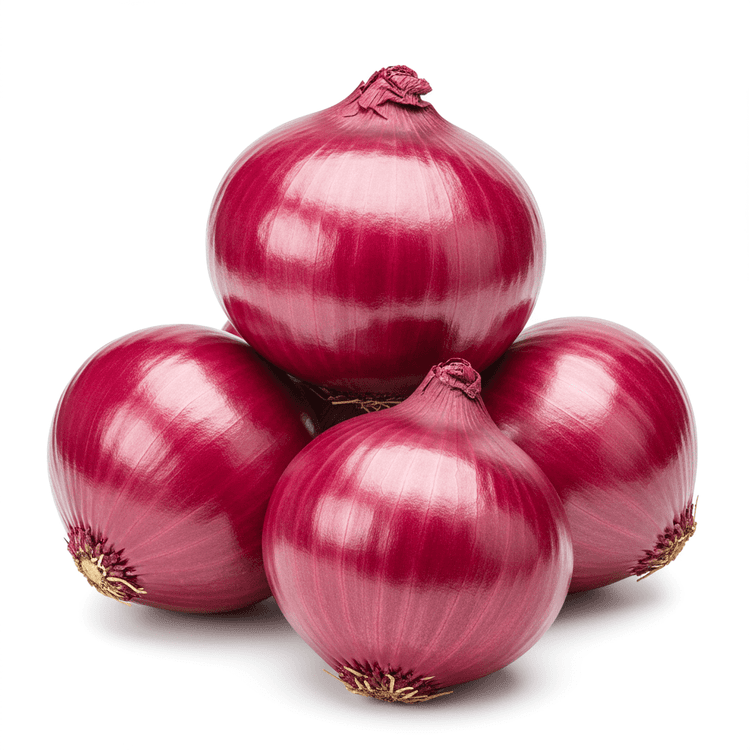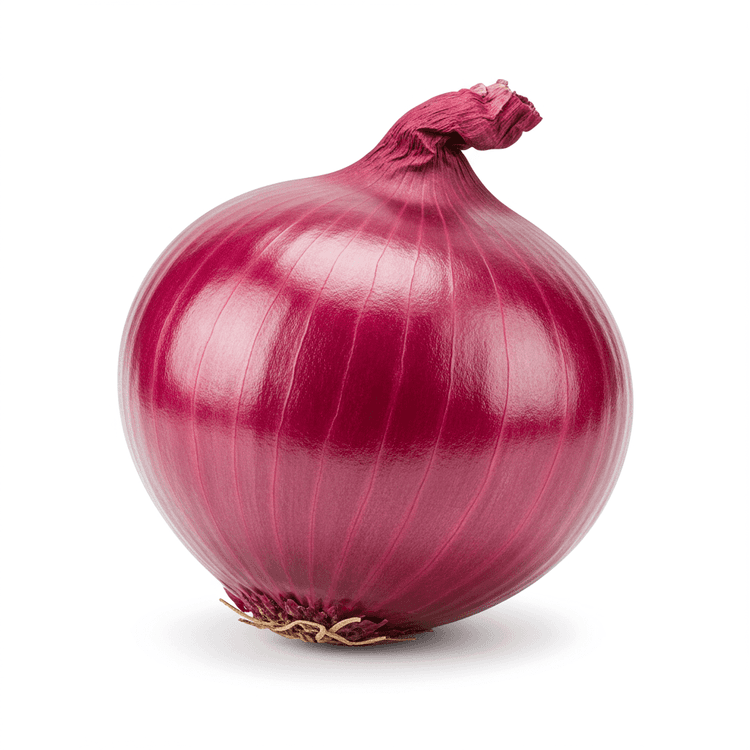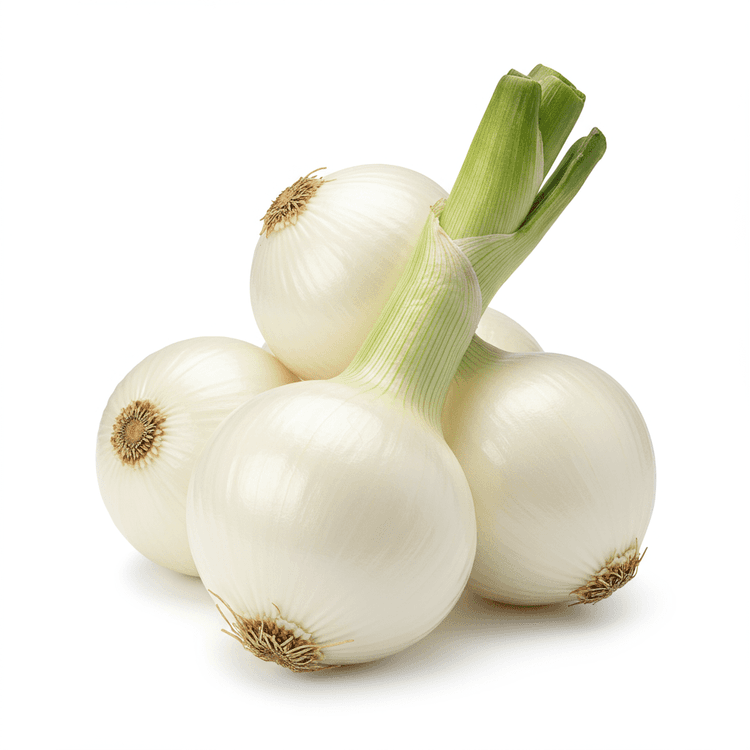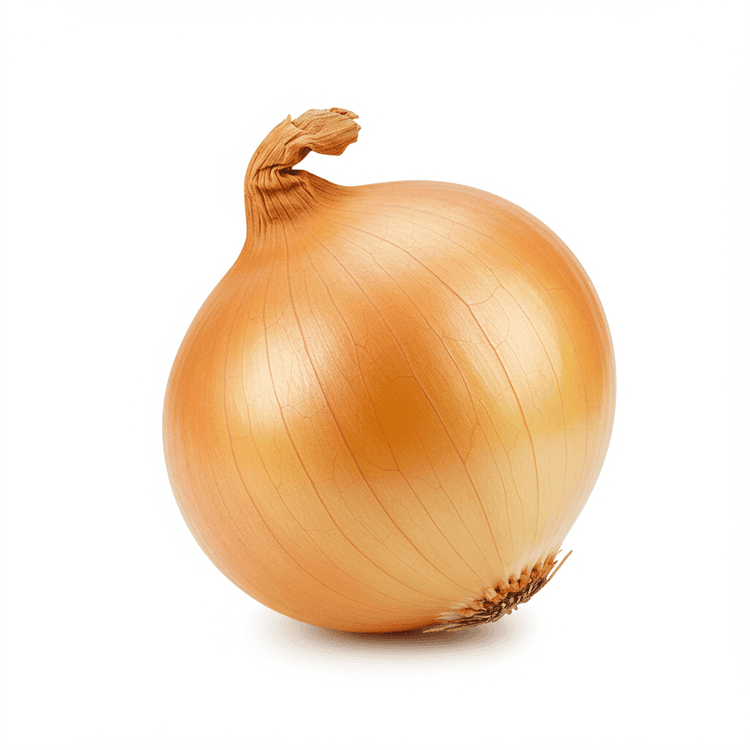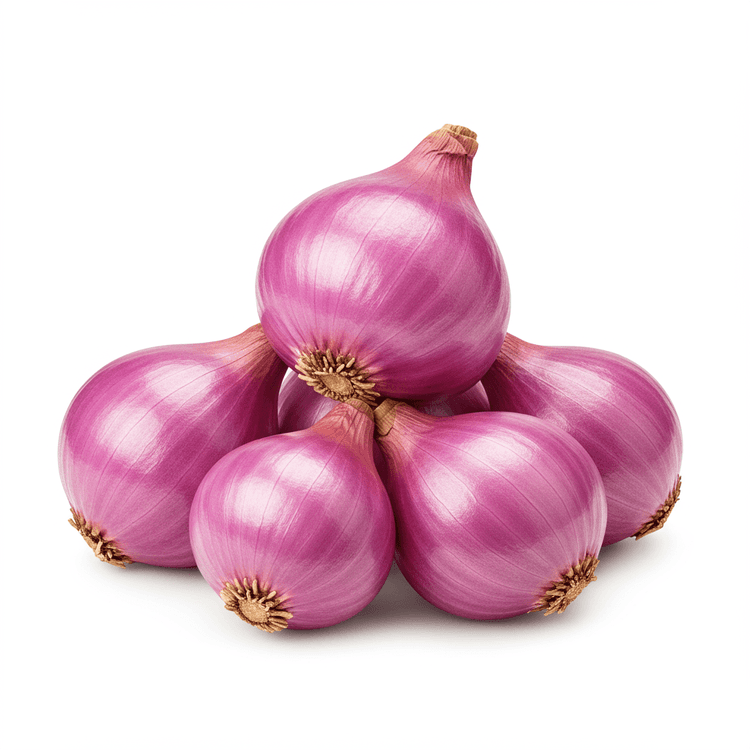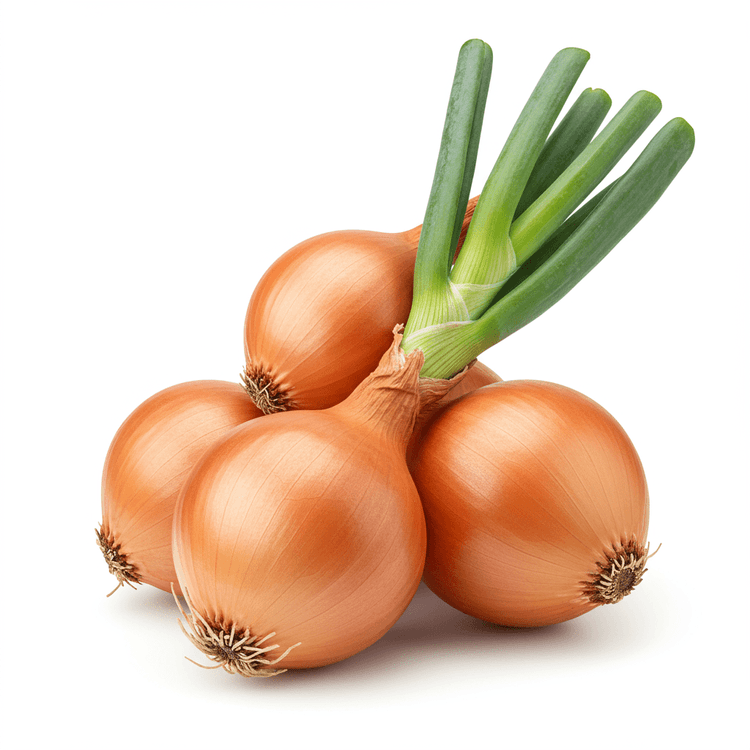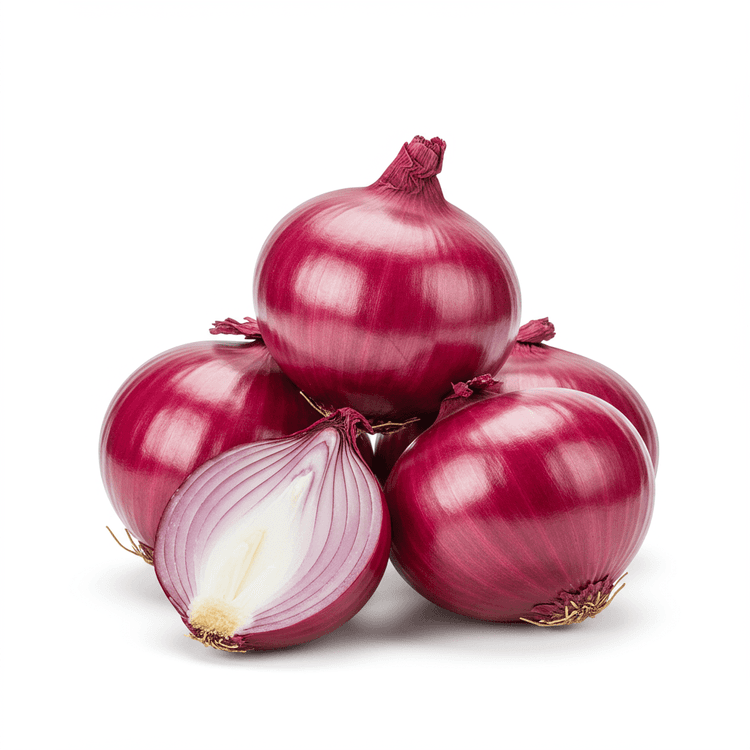
Red Onion
The red onion, a vibrant and flavorful variety of the common onion, is easily identified by its deep reddish-purple skin and white flesh tinged with red. Its flavor is milder and sweeter than yellow onions, making it a versatile ingredient for both raw and cooked applications. Red onions offer a satisfying crisp texture when raw and become tender and sweeter when cooked. When choosing red onions, look for firm bulbs without blemishes, ensuring optimal freshness and flavor for your recipes.
Common Uses
- Use finely diced red onion in fresh salads to add a sharp, slightly sweet bite and a pop of color. It complements leafy greens, tomatoes, and cucumbers perfectly, enhancing the overall flavor profile of your salad.
- Grill or roast red onion wedges alongside meats and vegetables to create a caramelized, sweet, and savory accompaniment. The heat mellows the onion's sharpness, bringing out its natural sweetness.
- Pickle thinly sliced red onions in vinegar, sugar, and spices for a tangy and colorful condiment. Pickled red onions add a vibrant burst of flavor to tacos, sandwiches, and burgers.
- Incorporate sautéed or caramelized red onions into savory tarts, quiches, and pizzas. Their sweetness balances the richness of cheeses and other savory ingredients, creating a complex and satisfying dish.
- Add raw red onion slices to sandwiches, burgers, and wraps for a crunchy and flavorful layer. The onion's sharpness cuts through the richness of the other ingredients, adding a refreshing element.
- Use red onions as a primary ingredient in soups and stews, building a flavorful base for the dish. Their mild sweetness complements other vegetables and meats, adding depth to the overall flavor.
Nutrition (per serving)
Nutrition (per serving)
Calories
40.0kcal (2%)
Protein
1.1g (2.2%)
Carbs
9.3g (3.38%)
Sugars
4.2g (8.4%)
Healthy Fat
0.0g
Unhealthy Fat
0.0g
% Daily Value based on a 2000 calorie diet
Nutrition (per serving)
Calories
40.0kcal (2%)
Protein
1.1g (2.2%)
Carbs
9.3g (3.38%)
Sugars
4.2g (8.4%)
Healthy Fat
0.0g
Unhealthy Fat
0.0g
% Daily Value based on a 2000 calorie diet
Health Benefits
- Rich in antioxidants that combat free radicals and support cellular health.
- May promote heart health by helping to lower cholesterol and blood pressure.
- Contains quercetin, known for its anti-inflammatory and allergy-fighting properties.
- Good source of Vitamin C, boosting the immune system and supporting skin health.
- Provides dietary fiber, aiding in digestion and promoting gut health.
Chefadora AI is here.
Experience smarter, stress-free cooking.
Storage Tips
Store red onions in a cool, dark, and dry place with good ventilation, like a pantry or cellar. Avoid storing them near potatoes, as both emit gases that can cause the other to spoil faster. Whole red onions can typically last for several weeks when stored properly. Once cut, wrap tightly in plastic wrap or store in an airtight container in the refrigerator and use within 7-10 days.
Marnirni-apinthi Building, Lot Fourteen,
North Terrace, Adelaide, South Australia, 5000
Australia


